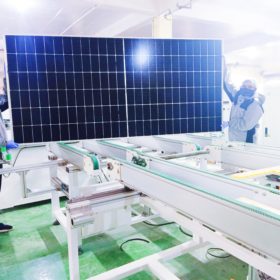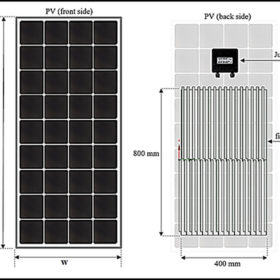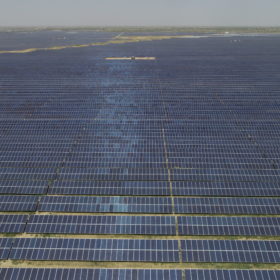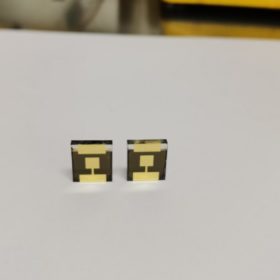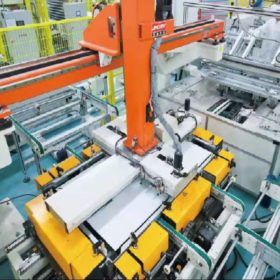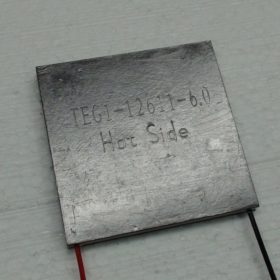Saatvik Solar doubles module capacity to 1GW with new fab
The Indian solar manufacturer’s new facility in Haryana is equipped to make mono PERC, half-cut, multi-busbar technology, to produce high-efficiency PV modules with 530-610Wp of power output.
US government extends Section 201 tariffs on imported PV panels, cells
The Biden administration has upheld an exclusion for bifacial panels in its new extension of Section 201 tariffs, while ramping up the annual tariff rate quota for cells to 5GW.
Solar trailer for off-grid applications from France
Developed by French start-up Ecosun, the trailer is equipped with 15 solar panels with output of 360 W and batteries with a storage capacity of 23 kWh. It can be used for construction sites, military camps and water pumping systems.
Additional PLI funds will push solar sector to achieve 2030 target
India should not just rely on solar equipment imports but also promote domestic manufacturing to ensure an uninterrupted march to its 280 GW target of installed solar power capacity by 2030. The budgetary allocation of an extra INR19,500 crore (US$2,602 million) to the production-linked incentive scheme for solar provides the much-needed impetus for domestic production, say GlobalData analysts.
Multi-level fin heat sinks for solar module cooling
Developed by Malaysian scientists, the proposed multi-level aluminum fin heat sinks (MLFHS) were found able to reduce the module operating temperature by up to 8.45 degrees Celsius and increase power yield by up to 10.75%. The system cost was estimated at $0.60/W.
Scatec and Acme put their 900 MW Rajasthan solar project on hold
Norway’s Scatec, which has a 50% stake in Acme’s 900 MW solar project in Rajasthan, cited a lack of domestic solar panel supply and the 40% import duty on solar panels effective from April as the reasons for putting the PV project on hold.
Perovskite solar cell with record-breaking fill factor of 86.6%
An international group of researchers has achieved the highest fill factor reported for perovskite cells of any size to date. The device was fabricated with a nitrogen-doped titanium oxide (TiOxNy) electron transport layer aimed at improving charge transport between the cell’s perovskite absorber and the electrodes.
Union Budget targets domestic production with 40% solar import duty and boost to manufacturing-linked incentive
The budget presented today by finance minister Nirmala Sitharaman allocates an extra INR19,500 crore (US$2,602 million) to the production-linked incentive scheme for solar and notifies basic customs duty of 40% on foreign-made solar modules and 25% on cells, from April.
Talesun to supply 250 MW bifacial modules for Rajasthan solar project
The Chinese solar manufacturer has signed a deal with Indian developer Clean Solar Power to supply 250 MW of BIPRO series bifacial modules for a solar project in Rajasthan.
Coupling photovoltaics with thermoelectric cooling
An international research team has investigated how solar could be combined with thermoelectric coolers (TECs), which are small solid-state heat pumps used either for heating or for cooling. A system was built with six solar panels, an air duct system, four batteries, a charge controller, TECs, an inverter, heat sinks, a test chamber, and condenser fans.
